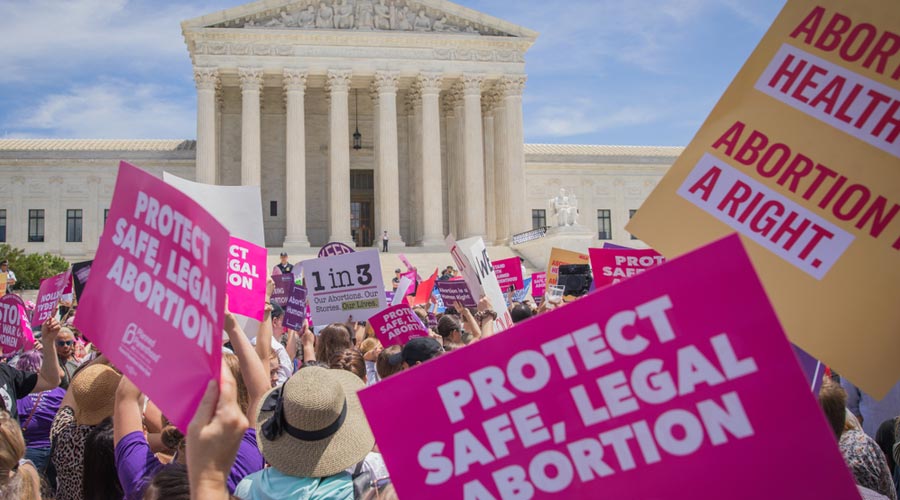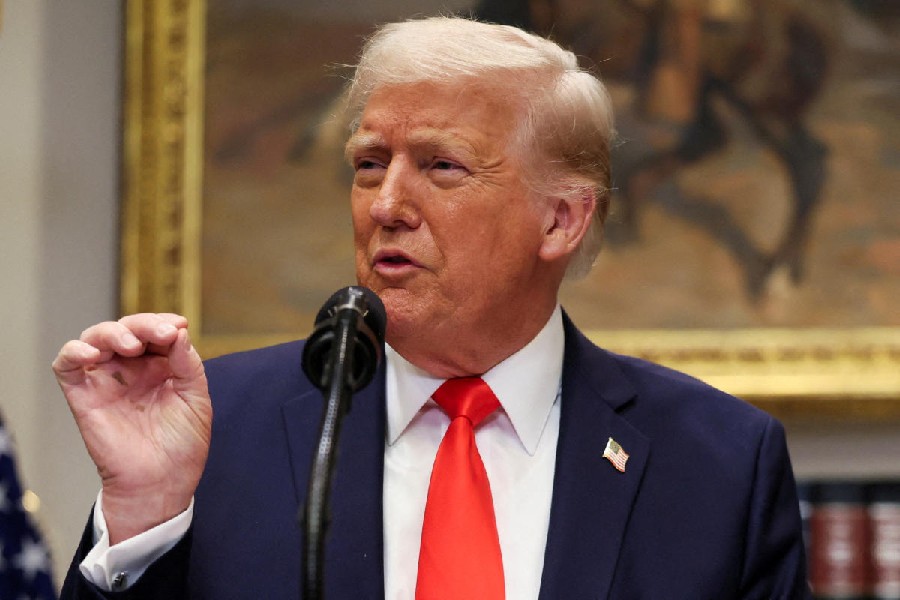The Supreme Court of the United States of America has decided by an internal majority of Conservative judges to overturn Roe versus Wade, the landmark 1973 judgment that made abortion a constitutional right. This ignited a political firestorm. The ongoing controversy, intense protests, and the follow-up political debates regarding the right to abortion have revealed a bitterly divided US. An editorial in The Lancet had opined: “Indeed, if the Court denies women the right to safe abortion, it will be a judicial endorsement of state control over women — a breathtaking setback for the health and rights of women, one that will have global reverberations.” But the focus right now should be on how judges are appointed in the country.
The political importance of appointing a Supreme Court justice in the US became clear in late 2020, when, towards the end of his presidential tenure, Donald Trump got the chance to appoint a judge to the apex court after the demise of RuthBader Ginsburg. Trump and the Republicans made an unprecedented effort to orchestrate the appointment of AmyConey Barrett.
People may wonder why a president would go out of his way to appoint a judge when his re-election bid is around the corner — the presidential elections were just over 30 days away. The upturning of Roe versus Wade makes it clear. This is Trump’s legacy and it makes him the most influential man in America for decades, irrespective of who is at the helm of the country.
In the US, whenever there is a vacancy in the Supreme Court — usually owing to the death of a judge — the president nominates a new justice, who is grilled by theSenate Judiciary Committee, after which, if necessary, theSenate votes the judge in orout. Supreme Court justices make landmark decisions that can fundamentally transform American society. Out of the nine justices in the USSupreme Court at present, six are judges appointed by some or the other Republican president — three of them by Trump.
In addition to these three associate justices of the USSupreme Court, Trump appointed54 judges for the US courts of appeals, 174 judges for the US district courts, three judges for the US court of international trade, 26 judges for the Article I courts, and one for the territorial courts during his four-year tenure as the US president. This was a tremendous opportunity that Trump capitalised on. As per the US’slaws, these judges have lifetime tenures and the loyalty of the US justices to their appointing party and even president has been widely discussed in American society, media, and the research community. Judges in the US system are even termed as ‘Republican’or ‘Democrat’ justices. In fact, based on data from 1937-2014, covering 13 presidents — FDRto Obama — and 39 justices who were appointed during this period, a 2016 article in theJournal of Legal Studies illustrated that 60.32 per cent of the time, justices voted in favour of the president who had not appointed them as opposed to 66.25 per cent of the time in favour of one who had — the difference being statistically significant. This effect was found to exist even when subsequent presidents hailed from the same party that appointed the justices.
This majority of Conservative and Trump-appointed justices in the Supreme Court and other courts will continue to dominate American society through orthodox ideologies, which are bound to be reflected in the judges’ verdicts on highly important issues such as abortion, affordable healthcare, and LGBTQIA+ rights, among others. The current Roe versus Wade debate is just one example of that hidden Republican strength.
Is this a loophole in the American democracy and does it need a tectonic shift in its judicial system? The Roe versus Wade debate certainly gives American lawmakers an opportunity to introspect.











